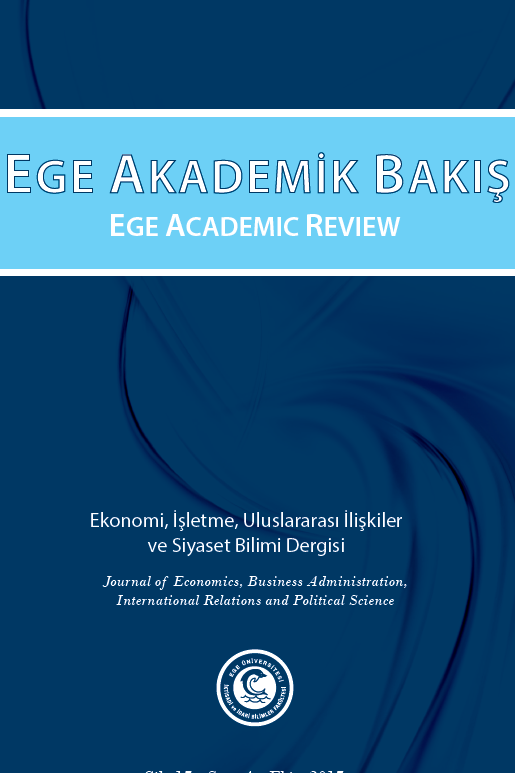Bu makale, Kıbrıs’ta Türk ve Rum etnik grupları arasında devam eden uyuşmazlığı, Birleşmiş Milletler Genel Sekreteri Kofi Annan’ın barış planı ile bağlantılı olarak inceleyen ve planın başarısızlık nedenlerini tartışan bir çalışma ortaya koymaktadır. Çalışma, öncelikle Kıbrıs sorununun hem iç, hem de dış dinamiklerini gözden geçiren kapsamlı bir analiz sunmaktadır. Bunun ardından, genel olarak Annan’ın barış çabaları, spesifik olarak ise planı değerlendirilmekte ve kritik edilmektedir. Bu bağlamda Annan Planı’nın başarısızlığı, Annan’ın arabulucu olarak stratejik hatalarına ve daha önemlisi, planının Kıbrıs sorununun ilişkisel boyutlarını kavrayamama gerçeğine ilişkilendirilmektedir. Sözü geçen kritikler temelinde gelecek barış çabalarının izlemesi gereken yön de vurgulanmaktadır
THE CYPRUS CONFLICT AND THE ANNAN PLAN: WHY ONE MORE FAILURE?
This article examines the ongoing conflict on Cyprus between Greek and Turkish ethnic groups in conjunction with UN Secretary General Kofi Annan’s peace plan and discusses why the plan failed to produce a mutually-accepted solution. The study first portrays a comprehensive analysis of the issue, reviewing both internal and external dynamics of the conflict. Following that Annan’s peace efforts, in general, and his plan, in particular, were evaluated and criticized. In this regard, the plan’s failure is attributed to Annan’s strategic mistakes and more important, his plan’s failure to capture the relational dimensions of the conflict. Based on the critiques, the direction that future peace efforts ought to follow is also addressed
___
- BAHÇELİ, Tosun (1990): Greek-Turkish Relations Since 1955, Boulder, San Francisco, Westview Press.
- DENKTAŞ, Rauf (2004): Kıbrıs Girit Olmasın, İstanbul, Remzi Yayınları. Greek-Turkish Relations and US Foreign Policy (August, 1997): United States Institute of Peace Publication, Peacework, 17.
- HAMPSON, Fen O. (1996): “Why Orphaned Peace Settlements Are More Prone to Failure”, Managing Global Chaos: Sources of and Responses to International Conflict, CROCKER, Chester A. vd. (ed.), Washington DC., United States Institute of Peace Press, 553-550.
- HANNAY, David (2005): Cyprus: The Search for a Solution, New York, Palgrave Macmillan.
- INTERNET: http://www.cyprus-un-plan.org
- KIZILYÜREK, Niyazi (2005): Birleşik Kıbrıs Cumhuriyeti: Doğmamış Bir Devletin Tarihi, İstanbul, İletişim Yayınları.
- MARKIDES, Kyroacos C. (1977): The Rise and Fall of the Cyprus Republic, New Haven, Yale University Press.
- MOORE, Christopher W. (2003): The Mediation Process: Practical Strategies for Resolving Conflict, San Francisco, Jossey-Bass Publishers.
- NECATİGİL, Zaim M. (1982): The Cyprus Conflict: A lawyer’s View, Nicosia, Tezal.
- PANTELI, Stavros (1984): A New History of Cyprus: From the Earliest Times to the Present Day, London, East-West Publications.
- STEPHENS, Robert H. (1996): Cyprus: A Place of Arms, London, Pall Mall Press.
- VOLKAN, Vamik D. (1989): “Cyprus: Ethnic Conflicts and Tensions”, International Journal of Group Tensions, 19 (4), 214-241. 39
- VOLKAN, Vamik D. ve ITZKOWITZ, Norman (1994): Turks and Greeks: Neighbours in Conflict, Cambridgeshire, UK, The Eothen Press.
- XYDIS, Stephen (1973): Cyprus: Reluctant Republic, The Hague, Mouton.
- YILMAZ, Muzaffer E. (2004): “The Political Psychology of the Cyprus Conflict and Confidence Building Measures Sustaining Peace Efforts”, Balıkesir Üniversitesi, Akademik Fener Dergisi, 2, 212-254.
- ZARTMAN, William ve TOUVAL, Saadi (1996): “International Mediation in the Post-Cold War Era”, Managing Global Chaos: Sources of and Responses to International Conflict., 445-461
- ISSN: 1303-099X
- Yayın Aralığı: Yılda 4 Sayı
- Başlangıç: 2000
- Yayıncı: Ege Üniversitesi
Sayıdaki Diğer Makaleler
OTEL İŞLETMELERİNDE DIŞ KAYNAKLARDAN YARARLANMA (OUTSOURCING)
JAPONYA’NIN YABANCI PAZARLARA GİRİŞ STRATEJİLERİ
ÜÇ BÜYÜKLERİN -BJK, FB VE GSFİNANS PİYASALARINDAKİ DURUM DEĞERLENDİRMESİ
Ayşen KORUKOĞLU, Serdar KORUKOĞLU
AB’DE ŞEKER POLİTİKASINDAKİ DEĞİŞİKLİKLER, BİOETHANOL ÜRETİMİNİN ÖNEMİ VE TÜRKİYE
TÜKETİM KÜLTÜRÜNDE BEDEN GÜZELLİĞİ VE YEMEK YEME ARZULARI: KADINLARIN TÜKETİM PRATİKLERİNE YANSIMASI
Ayla Özhan DEDEOĞLU, İpek SAVAŞÇI
BİREYSEL VE İŞ ORTAMINA AİT ETKENLER AÇISINDAN İŞ DOYUMU
